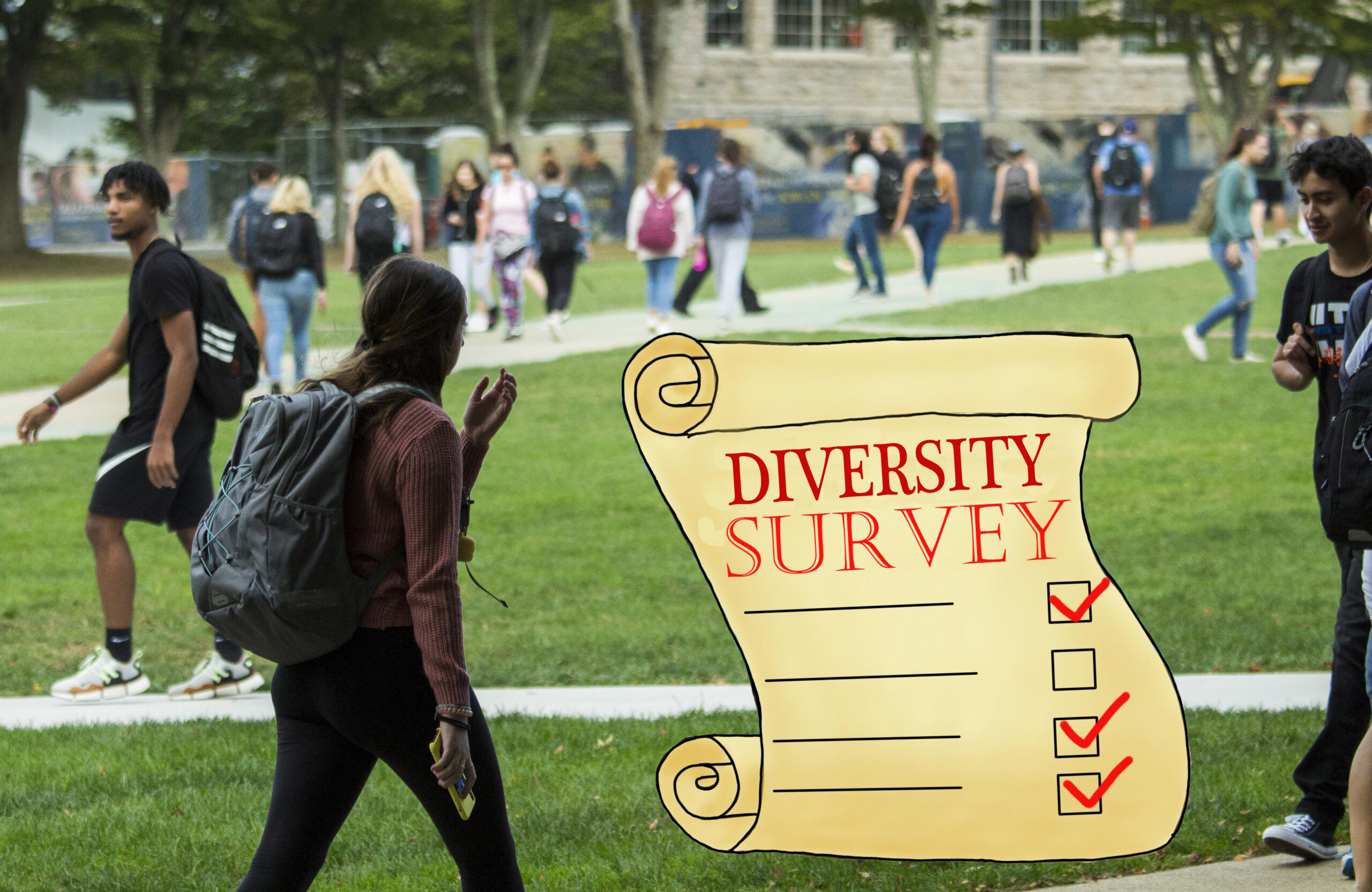URI’s Climate Survey Working Group is conducting a survey in order to better target improvements to the URI experience for both students and faculty. Graphic by Alison Carpino. Photo by James McIntosh.
The University of Rhode Island’s Climate Survey Working Group (CSWG) is creating a survey to understand student and faculty experiences and how they believe URI should improve itself.
The survey will consist of demographic questions as well as written responses for faculty, staff and students to write in-depth about topics such as their level of comfort in the classroom setting, whether the person has ever thought of leaving the University and why, along with questions about personal experiences, knowledge of campus resources and ideas on diversity.
“We’ve heard a lot of people talk about the need for hiring and retaining diverse faculty,” Mary Grace Almandrez, URI’s associate vice president and chief diversity officer, said. “That’s an issue that people across the University have said should be a top priority.”
The CSWG is urging all members of the URI community to take the survey in order to provide them with a benchmark for a new diversity plan. These plans are made every five years in order to give the University an idea of what its main priorities will be.
A timeline has been put in place in order to optimally utilize the data gathered. Following the survey, the assessment results will be published in the fall semester and focus groups will be created from students, faculty and staff. The new plan will take effect in Fall 2022.
When asked about the effect the hybrid semester had on the distribution of the survey and what urged members of the CSWG to continue with the plans for this survey during a pandemic, Almandrez and Dean of the College of Arts and Sciences Jeannette Riley both said the group had no hesitations to continue with their original timeline and plan.
“We want as many people to take this on campus as possible,” Riley said. “The more voices we can get the more information we can gather about the campus and information on what we can do to make a great campus even greater.”
The survey will be sent to all campus personnel from those who work on the grounds, to students, to faculty and staff, all the way up to the President’s office. The CSWG is interested in all answers, but are particularly interested in student replies, both of graduate and undergraduate students.
“I think we’re particularly interested in our students,” said Riley. “We always want to hear the student voice in all of this. [They] are on the ground level and we’re here because of you.”
The survey is predicted to take about 20 to 30 minutes to complete, according to Riley and Almandrez. The option to skip questions will be available, and the survey will be available for four weeks following its launch.
When asked about the role this survey will play in the University’s future planning to expand diversity, Almandrez was optimistic.
“Our hope is this is not a one-time thing,” she spoke. “Our hope is that we do this on a regular basis. I think every three to five years is reasonable so we can see change over time and see how cohorts or classes may experience changes.”

